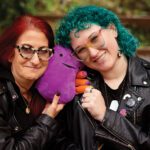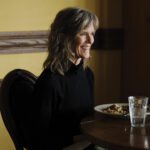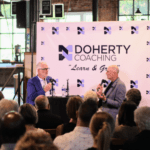Changing the blueprint: Dan Buettner on healthy living
December 29, 2023

Explorer, journalist and producer Dan Buettner shares wisdom learned from years studying places where people live long and healthy. He’s coming to Charlotte in February.
by Cathy Martin
It’s that time of year, when many of us decide we’re going to shed a few pounds, give up alcohol or dust off that Peloton in the basement. For real, this time.
The truth is, nearly all of those New Year’s resolutions ultimately fail. So what’s the key to healthier living in the long term? According to Dan Buettner, journalist, explorer and New York Times-bestselling author, it’s less about the conscious changes we make with our diets and exercise regimens, and more about the features and social structures that are baked into the societies in which we live.
“The idea is you want to get people to unconsciously move more, eat less processed food — more whole food, plant-based — socialize more, and socialize with the right kind of people (who encourage healthy choices),” Buettner tells me on a Zoom call in early December. “And then live their purpose through either their jobs or their families or through volunteering.”
Teaming with National Geographic and the National Institute on Aging, Buettner began two decades ago researching the Blue Zones, the five places on Earth with the healthiest, longest-living populations. He and a team of scientists spent time in each of these locations (Okinawa, Japan; Sardinia, Italy; Nicoya, Costa Rica; Ikaria, Greece; and Loma Linda, Calif.), getting to know the people and studying their lifestyles and habits. He’s written multiple books based on the research, and last year debuted a Netflix series, Live to 100: Secrets of the Blue Zones. And he’ll appear in Charlotte next month as part of Queens University’s The Learning Society speaker series.
Buettner’s first book about Blue Zones became a New York Times bestseller. That landed him appearances on CNN, Good Morning America and The Oprah Winfrey Show, where he’d sometimes bump into other longevity experts touting trendy diets and exercise routines. “And I just said to myself, ‘That’s not right.’ So I got the idea of manufacturing a Blue Zone, of taking what I’ve learned in these places and applying it.”
Armed with a grant from AARP and partnering with the University of Minnesota School of Public Health, Buettner launched the first Blue Zones Project in Albert Lea, Minn. “We went about devising a blueprint for a city where the environment has changed such that the healthy choice is the easy choice. And that involves working with all the restaurants, grocery stores, schools, workplaces and churches so that they optimize their designs and policies.”
That could mean anything from adding more sidewalks and community gardens to having grocery stores label foods known to increase longevity to getting restaurants to remove sugary sodas from kids’ menus.
Buettner has partnered with municipal governments, large employers and health-insurance companies to implement Blue Zones Projects in more than 70 communities, workplaces and universities, from Fort Worth, Texas, to Naples, Fla.
“The big insight here is where people live a long time, it’s not because they try. It’s not because they pursue health as we do — some diet or supplements. It ensues — it’s the result of living in the right environment.”
Part of establishing that environment means creating more walkable cities. “Our bodies evolved in a constant state of motion,” Buettner explains. “Our Paleolithic ancestors were on the move all the time. That’s the way our bodies are engineered. They’re not engineered to sit around all day in our offices.”
Buettner says achieving this, even among cities congested with traffic, isn’t as impossible as it may seem if city leaders are open-minded. To track results, Blue Zones Project hires Gallup to measure obesity rates, life satisfaction, chronic disease and physical activity levels.
“If you live in an environment where it’s easy to walk to get your coffee, walk to go to work, it’s easier for kids to walk to go to school — if the places you encounter are on the way or serving healthy food, the recipes you’re exchanging with your friends and neighbors are healthy, or your friends and neighbors are healthy — it creates a swarm of nudges and defaults that engineers our unconscious behavior,” Buettner says.
“It works when the focus of your efforts are shaping the surroundings for the long term, so that people’s unconscious decisions are slightly better all day long, for months and years and decades. That’s what works.” SP
Unlocking the Secrets of Happiness with Dan Buettner is Feb. 27 at 7 p.m. at the Sarah Belk Gambrell Center for Arts & Civic Engagement. Tickets are $15-$65. Learn more and purchase tickets here.
Photograph courtesy Queens University






